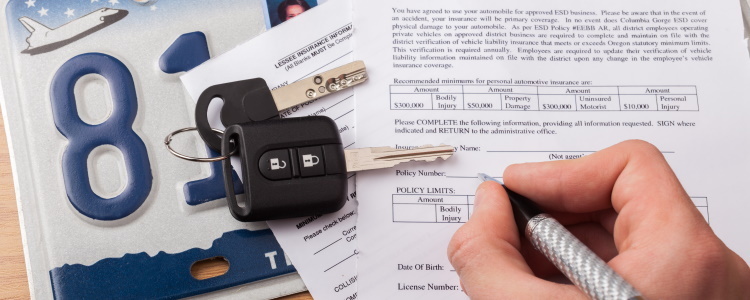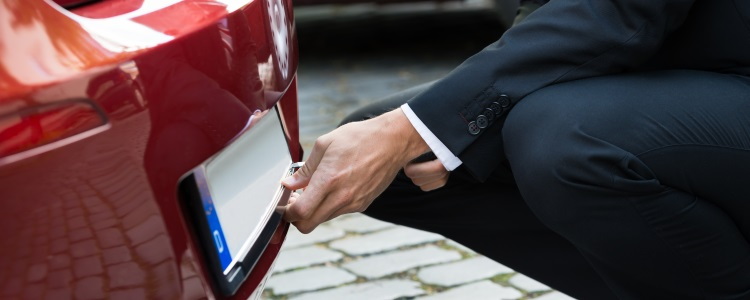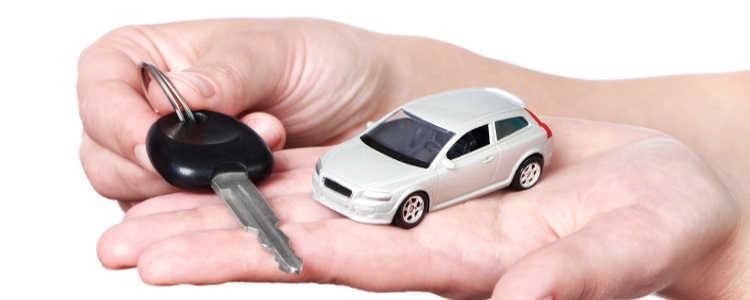Yes, you have to sign a title to be the owner of a car. We go over the process of transferring vehicle ownership, and other tips for getting ready to sell or buy a car.
Registering a Car With the Title
 To be able to register a vehicle, you must have ownership and have your name on the title. When you sell a car to someone, not only is there an exchange of money, there’s a transfer of ownership as well.
To be able to register a vehicle, you must have ownership and have your name on the title. When you sell a car to someone, not only is there an exchange of money, there’s a transfer of ownership as well.
To officially transfer ownership of a vehicle to someone else, the seller and the buyer must sign the car’s title. Every state has slight variations in how their titles are set up, but there’s always a section called “title assignment by seller” or “transfer of ownership” – or something along those lines.
States vary in their specific wording on their individual titles, but, regardless, most every state requires that you both sign and print your name on the title during a sale. Many states require other information to be recorded on the title, such as the vehicle’s current mileage at the time of the sale.
Once the seller and the buyer both sign the title, the buyer takes the title to a Department of Motor Vehicles (DMV) or Secretary of State (SOS). There, the buyer gets a new title with their name printed on it, which allows them to register the car in their name and put a plate on it. The registration has to match the name on the vehicle’s title, so you can’t register a car in your name if your name isn’t on the title.
Additionally, to register a vehicle at all, you must have a valid driver’s license. You technically don’t need a driver’s license to purchase a car, but you need one to legally register and drive it.
What if I Don’t Have the Title?
There’s a way to recover a lost, stolen, or damaged vehicle title. You can typically head to your local DMV or SOS and fill out some paperwork. Usually, the form you need to ask for is called a vehicle replacement title application, or a duplicate title form. Some states also allow you to complete these forms online. You’re going to need some identification to request a copy or duplicate of the car’s title.
To replace a title, expect to need these items:
- Your driver’s license
- Your Social Security number
- The vehicle identification number (VIN)
- The car’s make, model, and possibly the year
- The reason you’re requesting a duplicate title (in some states)
Your state may require more or less information, but this is the basic information you should prepare. In addition, you’re probably going to pay a small fee. Some states also require a notary to be present when you sign the replacement title, which could mean paying another fee.
What if I Never Got the Title?
If you purchased a vehicle from someone else and you never received the title, or you never signed the title, the sale wasn’t legitimate. This is called title jumping – and it's illegal in every state.
If a private seller or car dealer doesn’t hand you the title in a vehicle sale, don’t go through with it. Without the title, you can’t prove that you’re the legal owner of the car, and trading it in to a legit dealership is no longer an option.
If you’ve been a victim of title jumping, and your vehicle was never registered in your name, your next step should be to get into an honest car sale with a trusted establishment.
Looking to Get Into Your Next Auto Loan?
Finding a trusted dealer with the resources to work with your situation can be stressful, especially if you’ve been turned down by traditional auto lenders due to your credit.
Car shopping doesn’t have to be tiring if you start with us at Auto Credit Express. We’ve got connections coast to coast, and we match borrowers to dealerships near them that assist bad credit borrowers. To begin, fill out our free auto loan request form, and we’ll get to work for you!

















